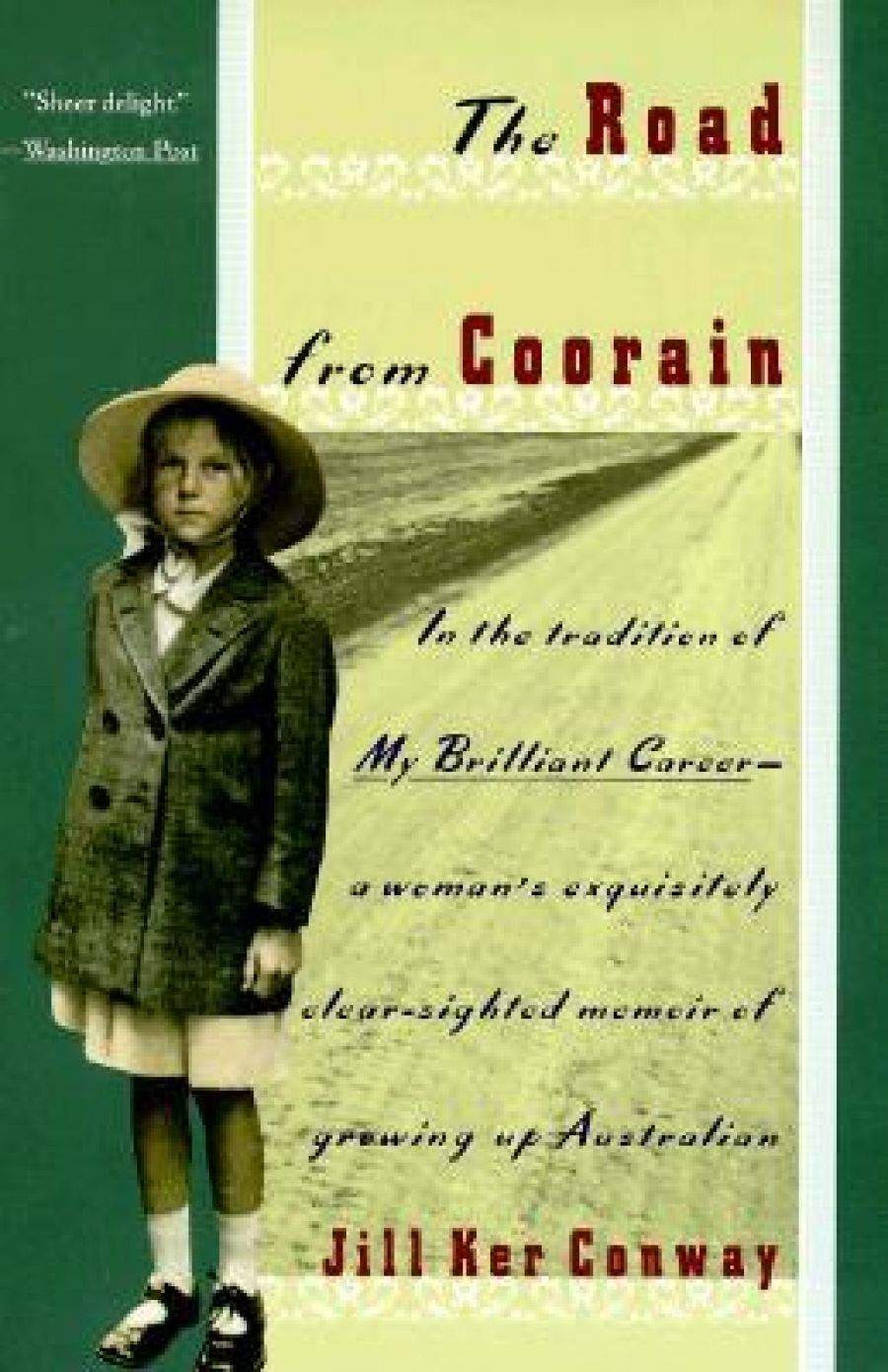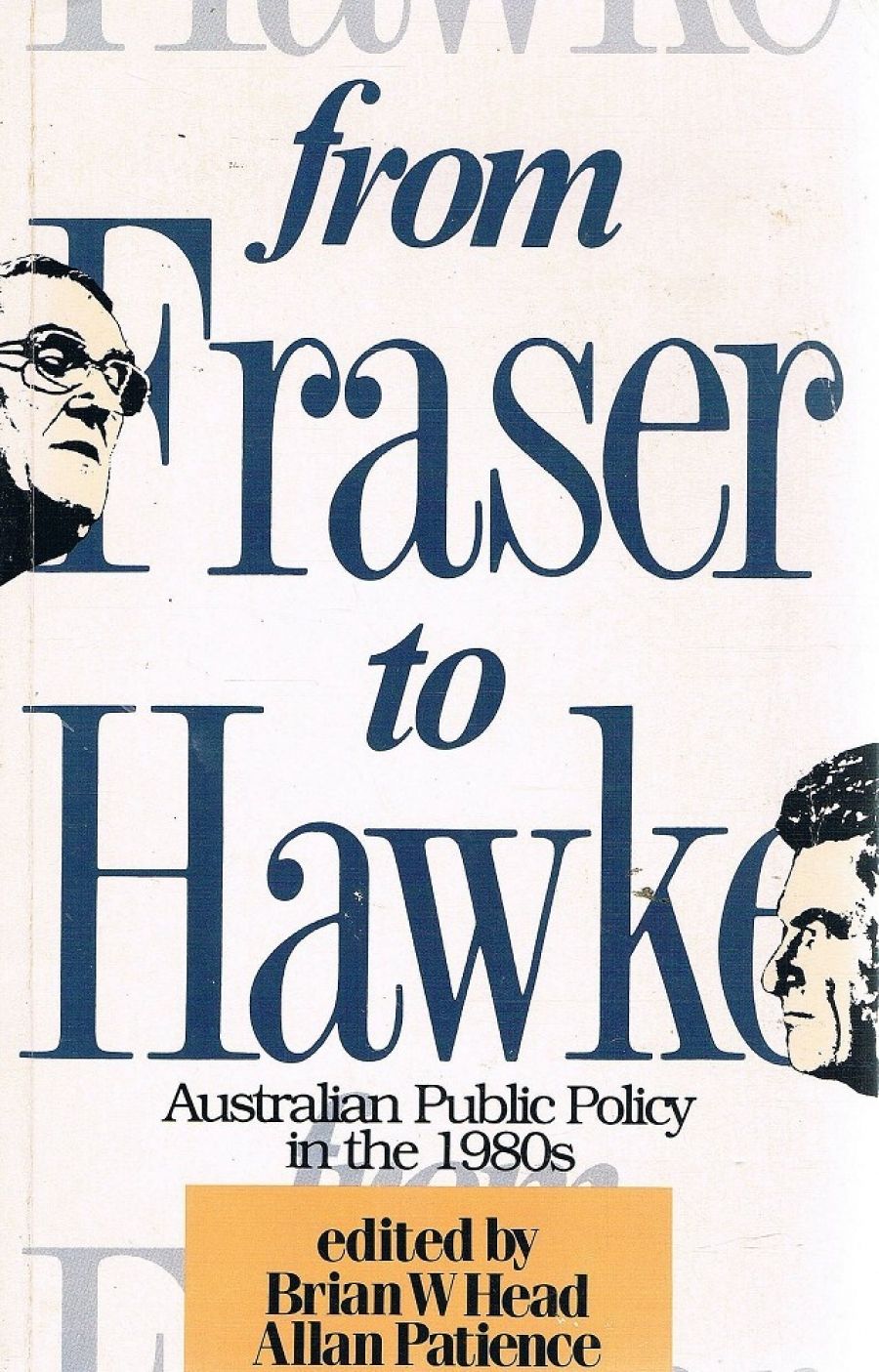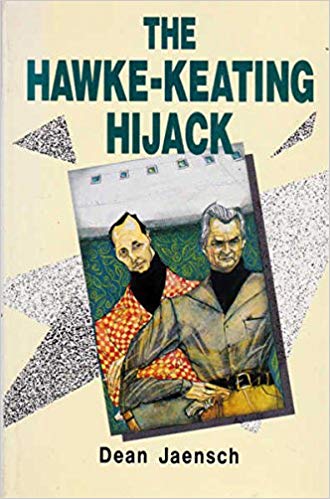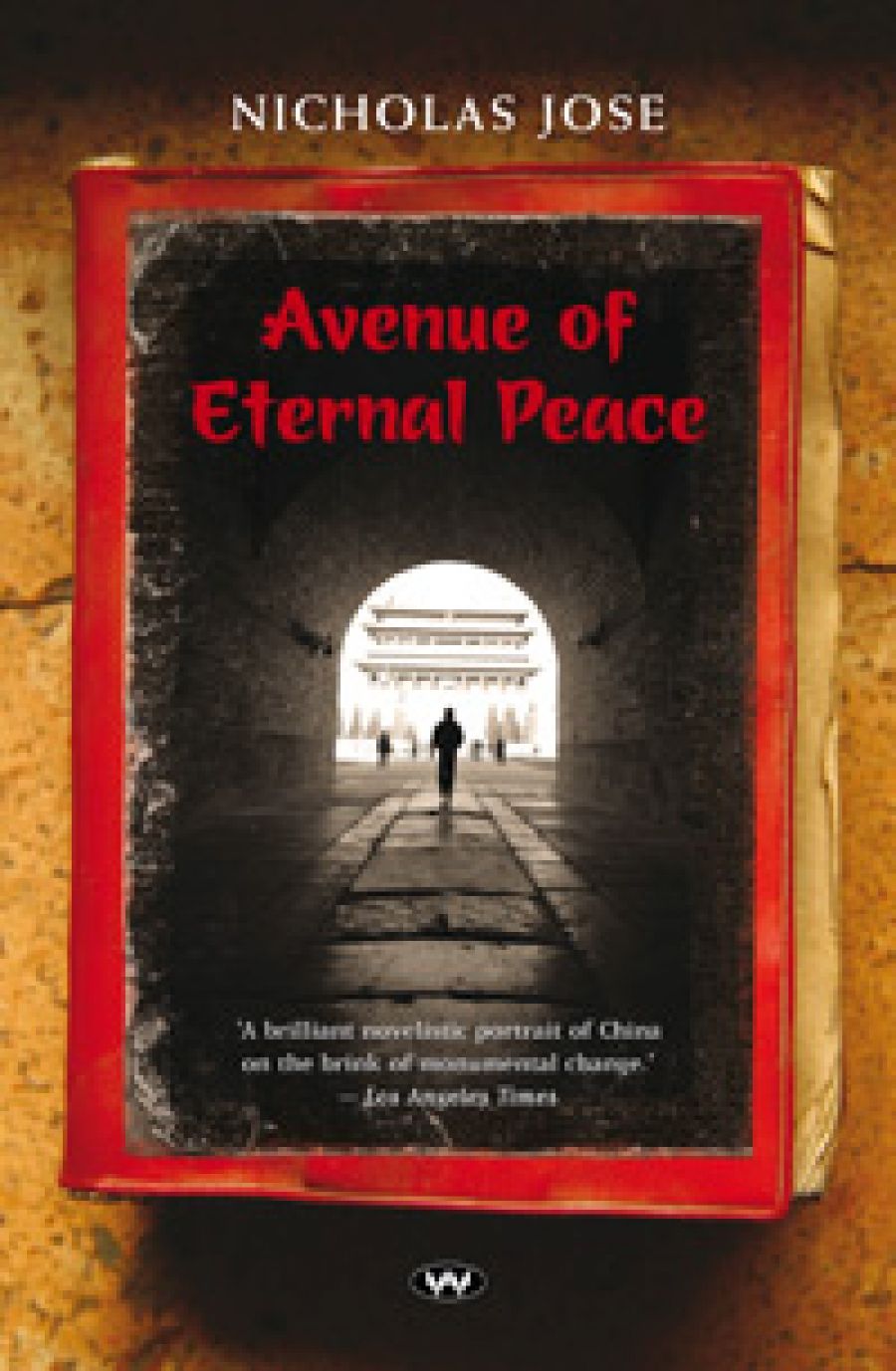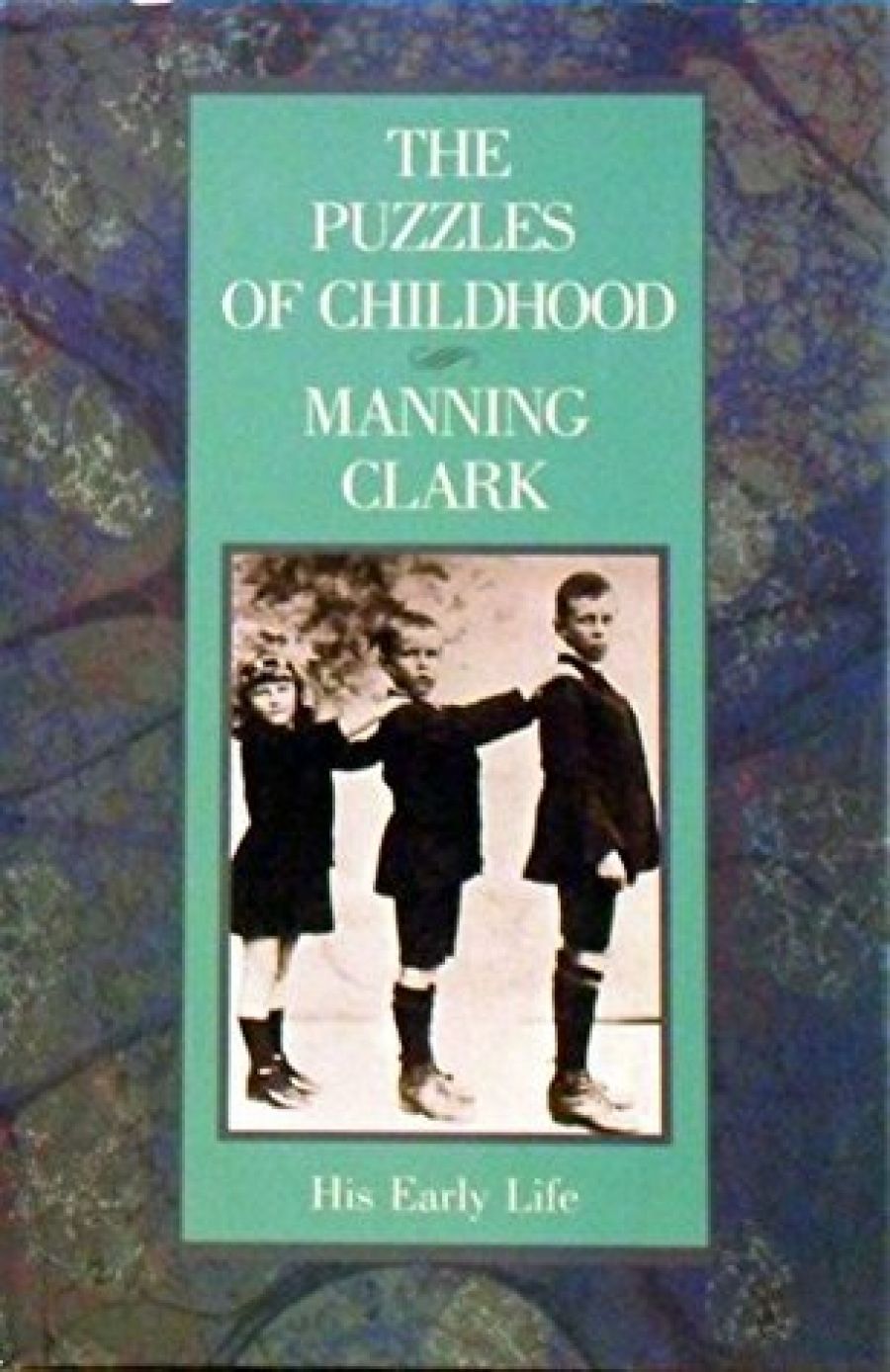
- Free Article: No
- Contents Category: Memoir
- Review Article: Yes
- Online Only: No
- Custom Highlight Text:
Manning Clark will be remembered as a historian long after the last jot and tittle of the facts he amassed have been disputed and every revisionism has had its day, proving for those with the needful faith that he made it all up, that he was a waffler, that the diorama he presented as the history of Australia was nothing but an allegory of the inside of his head, and that it was all vanity and a striving after wind.
- Book 1 Title: The Puzzles of Childhood
- Book 1 Biblio: Viking, $29.99 hb, 213 pp, 0-670-82782-7
Manning Clark will be remembered as a historian long after the last jot and tittle of the facts he amassed have been disputed and every revisionism has had its day, proving for those with the needful faith that he made it all up, that he was a waffler, that the diorama he presented as the history of Australia was nothing but an allegory of the inside of his head, and that it was all vanity and a striving after wind.
Clark will live not because he is a felicitous writer (in his own way he is as stumbling and awkward a writer as his hero Dostoevsky) but because he tried, with whatever talents God or chance had given him, to create an imaginative vision of the history of a nation which was true to the complexities and exaltations that might bedim the mind of any native son or daughter. We forget, because we are his inheritors, how much Manning Clark took on board the Jamesian notion of the complex fate in order to show that the mighty opposites of a European inheritance (the spirit of the Enlightenment and of Catholic Christendom, as Newman put it) were instantiated in our stories of convicts and settlers and priests and money-grubbers.
Read more: Peter Craven reviews 'The Puzzles of Childhood' by Manning Clark
Write comment (0 Comments)

